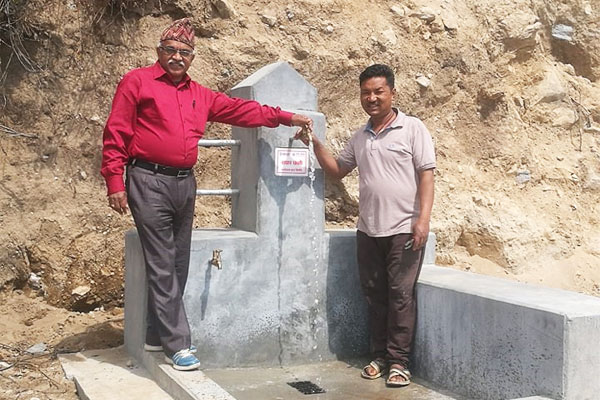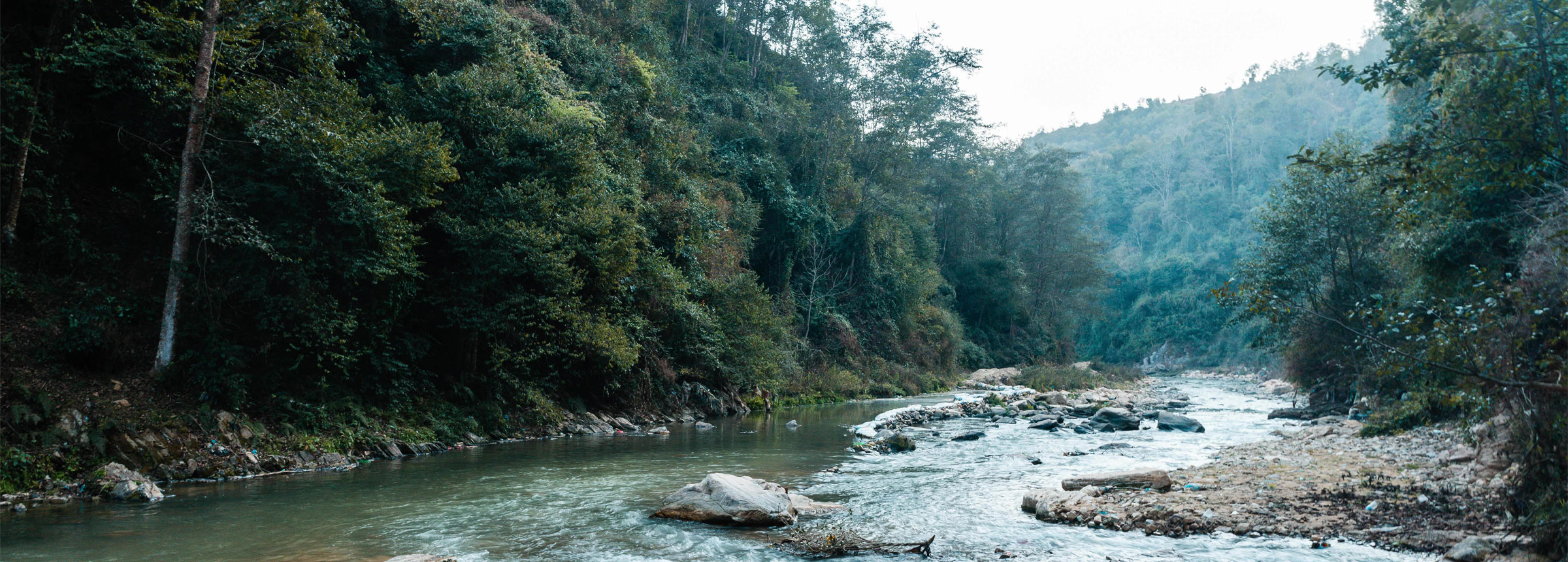
Quality on Tap
How Winrock is helping ensure a safe water supply in Nepal.
Jeremy Lakin
 Just as water pumps are a ubiquitous symbol of international development, a broken one is the symbol of the sector’s need for oversight and quality assurance.
Just as water pumps are a ubiquitous symbol of international development, a broken one is the symbol of the sector’s need for oversight and quality assurance.
Enter Badri Baral, director of Winrock International’s Renewable Energy Project Support Office in Nepal. He oversees Winrock’s latest project with USAID Nepal, Safaa Pani, providing oversight and quality control and assurance to the system of pipes, tanks and tap stands known as water schemes.
“These projects are capital-intensive, have a long life and contribute to wider economic livelihood. Quality assurance and control is the most important. Otherwise, such a huge investment is in vain. It poses a huge danger and risk of loss of life and property if it fails,” Baral says.

Winrock is working with the Social Empowerment and Building Accessibility Center (SEBAC), a local NGO endeavoring to construct more than 200 water schemes in the Sindhupalchowk and Dolakha districts, which were devasted by the 2015 earthquake. While some of these drinking water systems have surviving parts that are being incorporated into their rehabilitation, other systems are being constructed of entirely new parts.
The goal of Winrock’s work is ensuring that both new and rehabilitated schemes address the water, sanitation and hygiene issues that most affected these communities even before the earthquake. Due to a lack of sanitation infrastructure throughout the country, the risks of cross-contamination are high, resulting in increased risks of water-borne diseases at the drinking source. Diarrheal illness from waterborne disease is the leading cause of death for children in Nepal.
When assessing these schemes, Baral and his team (including team leader Hari Prasad Dhakal, top left, pictured with Chhumane Kolmarpha WUSC Chairman Gyalbo Shrepa) look for construction risks, environmental risks and operational risks. They examine not just the quality of the construction, but the storage of the materials and the scheme layout as well. Water schemes vary in complexity and size but they are all designed to convey water from its source to communities in need of it as safely and reliably as possible.

The team assesses whether the schemes are being built according to design and if there is any exposure from the water source to the tap stands where people retrieve their water. The last component, operational risks, refers to the sustainability of the drinking water infrastructure. While SEBAC is responsible for constructing the schemes, it’s the community’s Water User and Sanitation Committee (WUSC) that maintains, operates and facilitates any repairs. Construction quality is crucial, but an inactive WUSC could sabotage the long-term sustainability of the scheme.
In addition to providing quality assurance and control, Winrock is providing capacity-building training to SEBAC and other local implementing partners. “The project’s goal is to strengthen the management and implementation capability of local implementers,” Baral says. “Improving the the quality of domestic water scheme construction and management provides clean drinking water to rural communities and ensures meaningful high impact from USAID’s investment in Nepal.”
Related Projects

